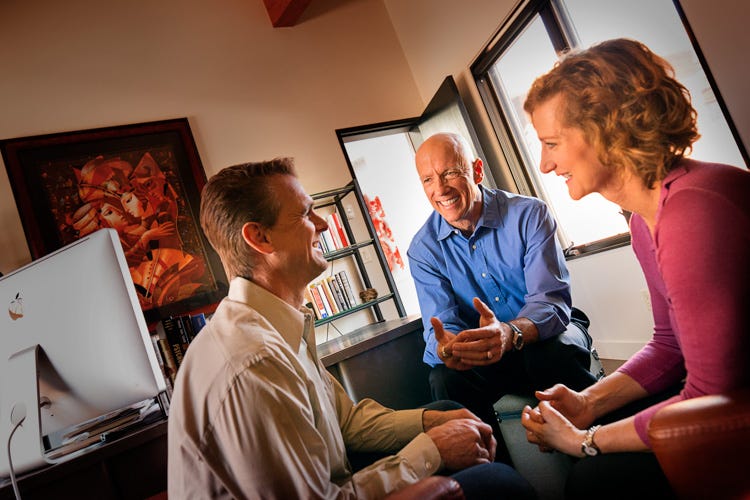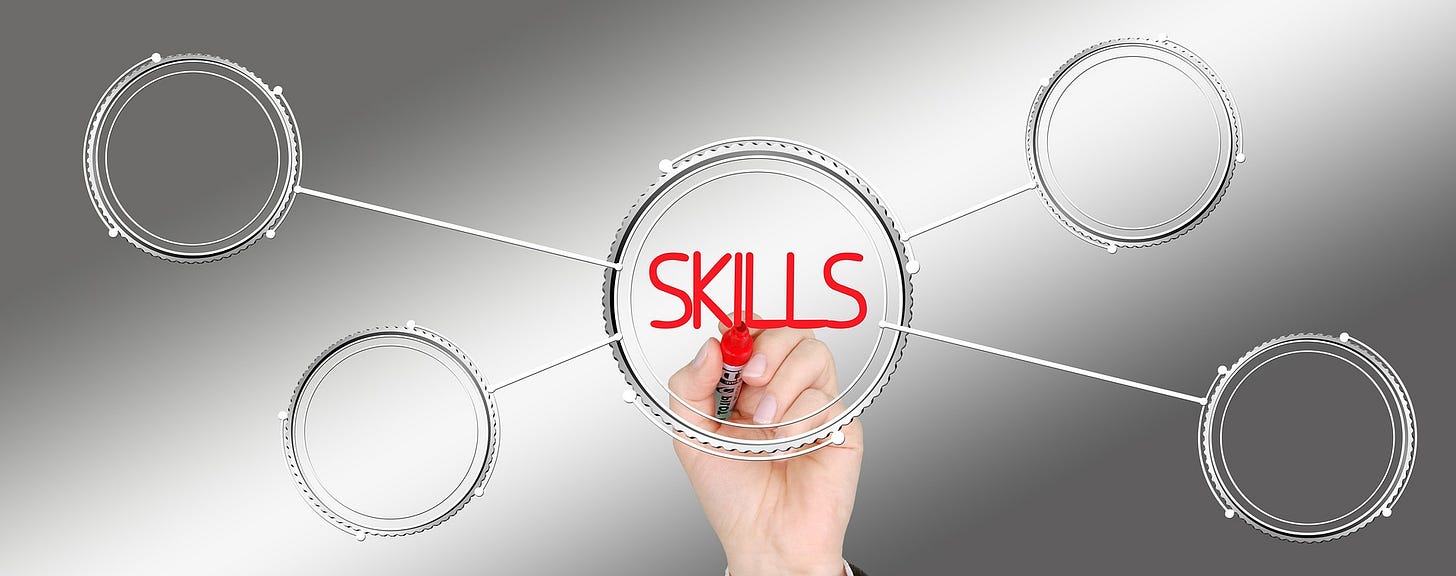Getting the Good Stuff
Introduction
What would it mean to you if someone said something about “managing sexuality intelligently?” You know what it is to manage finances intelligently and you have consultants at your beck and call should you want their help. You know what it is to manage your fitness program or your nutritional program intelligently in ways that our ancestors never could have imagined: “Vitamin C? What's that?” You know what it is to manage your career aspirations and your academic needs and, let's just sum it up, you know a lot about a lot when it comes to managing your life intelligently. Except for that other thing, that most intimate part of your life: your sexuality. What would that even mean to manage one's sexuality intelligently? I mean, we understand each individual word, but no one ever speaks of sexuality intelligently.
I am, perhaps, the least likely of all possible candidates to be writing your guide to managing a personal life intelligently. Don't believe me? Consider a little family background: my maternal grandfather was a counterfeiter, a bank robber, and in a nod to a long ago time, a cattle rustler. My own father, from his earliest teens was institutionalized in what were formerly known as “reformatories,” an early 20th century euphemism for juvenile gladiator schools bent on the production of the most violent of criminals, and my father, a very violent man, was a star graduate. Witnesses to his penchant for harming others remember him as a man who wouldn't hesitate to put a living man in a 55-gallon barrel for the purposes of setting him afire. The stories of his over the top malevolence are legion but, for me, very personal; my earliest childhood memory is of him breaking into the small apartment where my mother had, with her two young sons, taken refuge. After my father broke in one night, our home turned into a boxing ring while I lay in my bed pulling my pillow over my ears, trying desperately to block out the noise of my mother's cries and the sounds of her body slamming into the walls as he tossed her about, punching and kicking her with ferocious abandon.
This memory was my preschool lesson in trying to cope with abuse, insanity, and chaos. By the time I was 12, my father, greatly hated by local law enforcement, was shot dead in the parking lot of a motel as he attempted to fence his million dollar heist of fine art stolen from a local millionaire. He was so hated, and feared really, that although he was unarmed, he was shot so much by so many in the task force assigned to the job that the coroner noted that lead shot actually fell from his body as they picked him up.
My mother, like her mother before her, turned to alcohol to help her with the trauma that had regularly set itself down to stay in her life. Growing up with her unpredictable drunken episodes was a vital component of my education in dysfunctional family living. I learned quickly all the primary lessons of codependency as a boy: my identity depended on how well I was perceived as taking care of others, my own feelings were to be utterly repressed, and if I had a problem, and I saw no answer to that problem then, logically, there was no answer. My identity was largely based on always knowing, well, everything.
Just to make my presentation of self even more off-putting to you, dear reader, early on, in my undergraduate days, I threw myself into evangelical fundamentalism. I know, I know, you're wondering, Why would he bother with that? He's already more than a little messed up. And you're right, but I was attracted to all the certainty that group offered. That religion, like many others, was all about having the right answers to questions like, “How shall we live?” and “What is the meaning of our existence?” and “What does God say?” For someone like me, someone who needed a lot of control, that kind of religion offered a lot of concrete answers, a lot of control over life and over others. One spiritual mystery after another—solved! All the right answers and we knew (and I knew) they were right because “God said it, I believed it, and that settled it.”
By the time I was in college at age 20, my own (unacknowledged) emotional neediness led me to find a woman even needier than I, and I married her after dating for about 90 days. By this time I'd internalized the belief that no one could love me for the mere pleasure of my company and so I concluded, not so much in my head as in my very bones, that I had to actually earn any love I was going to get. I would do this by rescuing my damsel in distress, taking care of her and bringing healing into her life. Yes, another variation on that theme so common to early science fiction aptly criticized by Ursula Le Guin as the sort of genre that was always about “a man conquering the universe.” Yes, I read a lot of science fiction in those days. Those fantasies, set in a place and time far away and thousands of years in the future, probably saved my life as I was chronically depressed for the early decades of my life.
My identity depended on how well I was perceived as taking care of others, my own feelings were to be utterly repressed, and if I had a problem, and I saw no answer to that problem then, logically, there was no answer.
OK, so does this sound like the relationship guru you've been looking for? Of course not. Wouldn't we all prefer our relationship advice to come with someone with very nice hair who photographed well, standing next to his smiling wife (so lucky to have found him!), their many happy children, and a dog, preferably a golden retriever, who's really part of the family and you can tell because his is one of the happiest smiles in the photo. I tried to be that guy and, well, I just failed miserably. Spectacularly. Remember the boy who always got picked last to be on anyone's team? I was always that boy and I was never that photogenic hero of successful relationships.
But not for lack of trying. When people used to say to me that “relationships are hard work,” I agreed and I resolved to work harder. To do more. To please her. To deny myself. To pray. To get more hours at work. To do anything anyone told me (or those around me) to do more of. And yes, of course, I guilt-tripped, preached, and criticized my then wife, you know, to help her be the sort of woman that God wanted her to be.
In the last years of my marriage, after finally figuring out the answer to the question of what I want to be when I grow up, I'd gone back to school, gotten my master's degree in counseling and become a licensed Marriage & Family Therapist, a profession generally acknowledged as somewhere on the professional mental health food chain between psychiatrists at the top and bachelor level social workers, and drug and alcohol counselors at the bottom.
But the foundations of my attempts at achieving mental health were not begun in the university. Back then, in my “pretty much perfect” self, I didn't even respect the process of mental health counseling. But then I unexpectedly experienced some healing of my own (something I was clueless I even needed) when, through a series of fortunate events, I spent a couple years hanging out with 12-step groups like Al-Anon. Man, those were heady days, I really thought I had arrived! I became an insufferably enthusiastic missionary for self-help, codependency, and group work and boy oh boy, did my fundamentalist evangelical church appreciate that! OK, they didn't appreciate that, at all, not one bit.
So I continued to study to become a mental health professional. Yes, I studied, but in those days there was an extraordinary level of trauma and mental illness in my department's staff. One professor, a truly brilliant man, showed up for every class absolutely besotted with alcohol. You could only tell because, as the three-hour class went by, he sobered up and began, as we professionals say, to simply lose his shit. The other professors? Lots of them were children of alcoholics, spouses of alcoholics, control freaks of all kinds, and who knows what else. If you were attempting to learn how to actually help other people, grad school was maybe not a healthy place to be at that time. I probably still don't sound like someone you'd turn to for relationship advice, do I?
I married her after dating for about 90 days.
Well, I wasn't. But I was doing something I'd never really done before. I began “debriefing” from my spectacularly failed marriage. Now debriefing is normally a term used by police and military professionals to review critical incidents, also known as failures. I eventually came to realize that if I were going to ever figure out how to have a great relationship—something I had always wanted—then I was going to have to let go of what I might have thought she had done wrong and go on to figure out my own part in the mess. What was it about her that had me pick her in the first place? What was it about me that made that choice? What was it about me that continued to make that choice every day for 18 years? Why did I have such a hard time facing life on life's terms instead of living in what should have been? And finally, best of all, what could I have done differently?
Like most of us, I had started my marital attraction with falling in love with someone I found irresistibly attractive. Imagine, starting off the biggest commitment of your life with that, only that. Really seems to be missing something, doesn't it? Falling in love is, after all, one of the easiest things in the world for loving people and even with all my faults, I am a loving person. Attractive? There are so very many attractive people out there so that is no problem. Put the chemistry together with the love and what else could you possibly need? Well, I started to find out in my debriefing.
In the years (Years? Hey, I was new at this!) that I spent in my debriefing, I thought a lot and I talked a lot to my friends. Slowly, over years, my impaired self developed what other, far more knowledgeable people later taught me, was how to have a functional observing ego, that is, the ability to see myself, to be self-aware. In my case, I needed years to overcome the emotional resistance I had to considering my own flaws and to the fact that I'd been so very wrong for so very long a time.
My earliest revelation was that I'd failed to do what property investors call, performing my “due diligence.” I didn't really know the poor woman who ended up marrying me. I was absolutely appalled (in hindsight, of course) by how poorly matched we were. At age 20, I'd never thought to ask anyone whether they were an introvert or an extrovert—I didn't even know what those terms really meant. I didn't ask if she was a morning person or a night owl. I never asked any questions and, if I had, I would have asked them in the unhelpful binary mode like, "Do you like affection?" This is a terribly phrased question, isn't it? All or nothing is the answer, “yes” or “no.” I learned to start asking questions by framing them as lying on a continuum: “On a scale of one to ten, if ten is the most affectionate couple you've ever seen in life or in a movie, where would you be most comfortable?” Now that, dear reader, that is a freakin' great question—I learned a lot from that one.
Like most of us, I had started my marital attraction with falling in love with someone I found irresistibly attractive.
And note that one of the great things about it is that it frees the respondent (and the questioner) from a right or wrong way of thinking about things. That is, it frees us from a moral diagnosis and is the beginning of forming a scientific one like, "Gee, you prefer a two on that scale and I think I might be an eight, wow, are we incompatible or what?" Everyone is OK with this kind of approach because we're all different. This way of thinking led me to conclude I'd committed an epic failure (one of many!) in failing to perform my due diligence before signing on the dotted line of what was presumably a life-long commitment.
Whether I'm your guy or not, we all need to conduct the “Intentional interview” when we're getting to know someone and trying to figure out if a long term relationship might be a good idea or not. An intentional interview is a great way to get to know someone and to let them know you, and for both of you to see plainly where you each might want to take things. The intentional interview structured the dating experience and gave it meaning and purpose.
Out of the chaos of my thoughts about love eventually came clarity: there were patterns of adaptive behaviors and patterns of self-defeating behaviors. I saw myself continuing to do a lot that didn't work—for me or for anyone else.
And I'd have done better if I'd known better. (And let's face it, we all have.) But who would have taught me? Not my parents and not because they were bad people, but because no one had taught them. Why not? Because no one had taught anyone how to intelligently begin a process of mate selection.
Mate selection (and all the other topics in Getting the Good Stuff) should be taught in sex education, but we're living in a land where even saying words like “vagina” can result in legislative discipline. I don't know what your sex education classes were like but mine were about anatomy (parts) and physiology (what those parts do) and what can go wrong (sexually transmitted infections) and, oh yeah, how babies are made. So I'd learned the mechanics of sex but never the human context of meaningful connection. Getting the Good Stuff is about the meaningful connection.
So I learned I was going to have to, as The Martian’s Matt Damon said, “science the shit out of this.” But, no worries, by “science” I just mean observing and reasoning. Easy enough for you maybe, but I had never done this with my love life. If she was pretty and willing to be seen in public with me, then it is on! Instead of this, I had to learn to look at myself and really think about what I was doing. Did I make any mistakes in my first years of thinking about what I was doing or in dating with an intentional interview? Lots and lots! But, over time, I could see I was getting better.
I'd learned the mechanics of sex but never the human context of meaningful connection.
When it comes to love, I used to use what I now call “making a moral diagnosis.” She says she likes me but doesn't want to kiss as much as I do? Obviously, she's frigid. She wants to kiss more in public than I'm comfortable with? Obviously, she has issues. You get what I mean, right?
Getting the Good Stuff is essentially about mate selection—about which Dr. David Buss said that, “We are the descendants of those who knew when to cut their losses.” Benjamin Franklin said it: “An ounce of prevention is worth a pound of cure.” I had my debriefing, my observing ego, and I was conducting intentional interviews with anyone who'd let me. What else could I possibly need? Turns out, I needed a lot more clear thinking but, even with that, I needed more. I needed skills.
So I had to learn how to make conversation, to introduce myself, to use humor appropriately, and then on to learning how to talk about feelings (Thank you Al-Anon!), to confront, and frequently, how to terminate unfulfilling relationships. I used to take for granted that everyone had the knowledge of these social skills and, later, the needed intimacy skills. So hilarious. One day I learned my lesson when one of the kindest, most thoughtful men I've ever worked with said, “What are these intimacy skills you keep talking about?”
Here's another problem that affected me: lots of intelligence and yet I served as a host of an irrational belief system—especially about love. Because there's so little intelligent conversation about getting the good stuff I just never really tested some of my thoughts to see if they were sound. I lived in a world where, when it came to love, I was largely left to myself, left to reinvent the wheel of relationships on my own. Not surprisingly, in my ignorance and my immaturity, I made many mistakes like, “My mom was an alcoholic so if I'm not with an alcoholic, I should be OK.” But merely checking the box labeled, “Not an alcoholic!” is hardly enough. Yes, there actually was a germ of truth in my irrational generalizations about love. Learning to see beyond that germ freed me to know people, all people, better and to love them more.
I had my debriefing, my observing ego, and I was conducting intentional interviews with anyone who'd let me.
When it comes to romance and success in relationships, actual thinking is viewed suspiciously. “You think too much!” “You're taking all of the romance out of things!” and (wait for it you non-boomers), “All you need is love.” Please believe me when I say that I love being in love. I happen to be very much in love right now as I write this (and that warm positive regard I have for her is my new drug of choice—as opposed to controlling behavior). I am not the sort of person who would ever be in favor of taking relationship advice from a Mr. Spock-type, as portrayed in Star Trek. (At least, not any more.) But if all we needed was love, then wouldn't a lot more people be happy in their relationships? Perhaps Philosophy 101 said it best: love is a necessary but insufficient condition for having a great relationship. Maybe we all need to think a little, you know, get a little smarter.
Every idea in Getting the Good Stuff has been field tested by hundreds of men and women, and these ideas will help anyone who uses them. And I promise: they will become a fun and essential part of who you are. Applying them all to my own search for love and healthy relationship intimacy has led me from my epic long term failure of a relationship, to my currently blissful one that has been going on for the better part of three decades. Now that you know my story you could easily guess that, “Well! If he can do it then who can't?”
In the chapters ahead we'll be talking about:
Abuse-Free Relationships and why commitment to this standard is essential and how to get there;
Why conflict is nothing to avoid but instead must be embraced if we're going to solve conflicts;
Why sexual fantasy is nothing for you to be ashamed of but is instead invaluable; that you have sexual needs, what they are, and how to begin getting those needs taken care of;
Why you and your partner will benefit from clearly seeing the sexual contracts that underlie all committed relationships and how to set them up so everybody wins, and so much more.
And this is why you'll want to take a bit of coaching on relationships from me: I've made every single significant mistake a person could make in my search for love—and I've been forced by my work, my temperament, and my lifelong dreams of being in a normal loving relationship to figure out what I was doing that didn't work and how to change so I could make it work. I have been a spectacular failure and I've come to learn how to have equally spectacular success.
Every idea in Getting the Good Stuff has been field tested by hundreds of men and women, and these ideas will help anyone who uses them.
Galileo once said, “All truths are easy to understand once they are discovered; the point is to discover them.” And so here you are, standing on the threshold of discovering how to intelligently manage your sexuality. It's going to be a great conversation. We have so much to talk about.











Really great piece, and I can so identify. I wish we had some sort of school for relationships. I likewise had a rushed first marraige that did some damage to all involved. Keep up the great stuff.